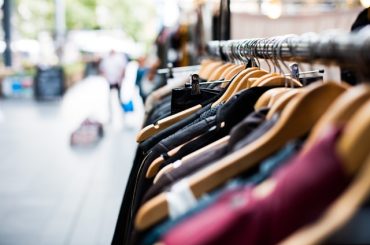Before we dive deep into the PESTEL analysis, let’s get the business overview of MINISO. MINISO is a Chinese low-cost retailer and variety store chain specializing in household and consumer goods, including cosmetics, stationery, toys, and kitchenware. The company was founded in 2013 by Japanese designer Miyake Junya and Chinese entrepreneur Ye Guofu. Despite its Japanese-inspired branding, Miniso is headquartered in Guangzhou, China.
Miniso’s business model is centered around offering a wide range of high-quality, stylish, and affordable products. Its product line is known for combining trendy aesthetics with practicality. The company is often compared to dollar stores and fast-fashion brands due to its business approach: it maintains low prices while rapidly updating its product offerings. Most products are priced between $1 and $30.
The company’s marketing strategy also emphasizes a commitment to environmentally friendly practices and sustainability, with some stores offering a range of natural, recyclable, and energy-saving products.
The colorful Marketing Strategy of Miniso
Miniso has rapidly expanded its global footprint with over 5,200 stores (as of 2022) in more than 80 countries, including the United States, Canada, Australia, Spain, Dubai, and India. Its aggressive expansion strategy has involved a combination of corporate-owned stores and franchising.
In addition to physical retail stores, Miniso operates e-commerce platforms in some markets, providing customers with online shopping options.
- Revenue was RMB10,085.6 million (US$1,505.7 million), representing an increase of 11.2% year over year.
- Gross profit was RMB3,069.8 million (US$458.3 million), representing an increase of 26.3% yearly.
- Operating profit was RMB882.0 million (US$131.7 million), representing an increase of 119.9% yearly.
Here is the PESTEL analysis of Miniso
A PESTEL analysis is a strategic management framework used to examine the external macro-environmental factors that can impact an organization or industry. The acronym PESTEL stands for:
- Political factors: Relate to government policies, regulations, political stability, and other political forces that may impact the business environment.
- Economic factors: Deal with economic conditions and trends affecting an organization’s operations, profitability, and growth.
- Sociocultural factors: Relate to social and cultural aspects that may influence consumer preferences, lifestyles, demographics, and market trends.
- Technological factors: Deal with developing and applying new technologies, innovations, and trends that can impact an industry or organization.
- Environmental factors: Relate to ecological and environmental concerns that may affect an organization’s operations and decision-making.
- Legal factors: Refer to the laws and regulations that govern businesses and industries.
In this article, we will do a PESTEL Analysis of Miniso.
PESTEL Analysis Framework: Explained with Examples
Political
- Trade Relations and Tariffs: As a global retailer, Miniso sources and ships products worldwide. The political relationships between China and other countries can influence trade tariffs, impacting product costs and pricing strategies.
- Regulatory Environment: Different countries have varying regulations regarding retail operations, imports, and product standards. Understanding and complying with these is crucial for Miniso’s operations in those regions.
- Political Stability: Political instability in any country where Miniso operates can affect store performance, supply chains, and overall sales.
- Foreign Direct Investment (FDI) Policies: Some countries have restrictions or specific policies concerning FDI, which might impact Miniso’s ability to expand or establish operations in those regions.
- Geopolitical Tensions: Given its Chinese origin, Miniso might be affected by geopolitical tensions between China and other nations, potentially influencing consumer sentiment or leading to boycotts.
- Government Subsidies or Support: In some regions, governments might offer subsidies or incentives to encourage retail growth or local manufacturing, which can be advantageous for Miniso.
- Consumer Protection Policies: These laws ensure consumers are not misled, and products meet certain quality standards. Adherence to these laws is essential for maintaining brand trust.
Economic
- Consumer Purchasing Power: Economic growth in a particular region can increase consumer disposable income, leading to higher purchasing power. This can be advantageous for retailers like Miniso.
- Economic Cycles: Recessions or economic downturns can decrease consumer spending, while economic booms might have the opposite effect. Understanding these cycles is crucial for inventory management and sales forecasting.
- Currency Exchange Rates: Since Miniso operates globally, fluctuations in currency exchange rates can impact the cost of goods, pricing strategies, and profitability, especially when converting sales from international markets back to their home currency.
- Inflation Rates: High inflation can erode consumer purchasing power while increasing operational costs for Miniso.
- Interest Rates: These can influence consumers’ willingness to spend or save. High interest rates deter consumers from making big purchases or taking on credit, while low rates encourage spending.
- Unemployment Rates: High unemployment can reduce consumer confidence and spending, while low unemployment often signals a robust economy with confident consumers.
- Global Economic Trends: As a global retailer, Miniso needs to be aware of broader economic trends, such as shifts in global trade dynamics, which can impact supply chains and pricing.
- Competitive Pricing: Given its value-oriented positioning, Miniso has to keep an eye on competitors’ pricing in various markets to ensure it remains an attractive option for cost-conscious consumers.
- Supply Chain Costs: Economic factors like fuel prices, manufacturing costs, and labor rates in different countries can influence the cost of goods and overall supply chain efficiency.
- Real Estate and Rental Costs: Economic conditions influence property prices and rental rates in various regions. Since Miniso has physical retail locations, understanding these dynamics is crucial for store expansion or contraction decisions.
Sociocultural
- Consumer Values and Preferences: Different cultures have varying design, color, and function preferences. What’s trendy in one culture might not be in another.
- Lifestyle Trends: The pace and nature of life, whether urban or rural, can influence product choices. For instance, urban lifestyles might prioritize compact and multifunctional products.
- Perception of Value: Miniso’s value-oriented proposition might be perceived differently across cultures. In some regions, consumers might prioritize quality over price, while in others, the reverse might be true.
- Brand Perception and Loyalty: Cultural factors play a role in how consumers perceive and engage with brands. The level of trust and loyalty towards foreign brands versus local brands can vary significantly.
- Demographics: Age distribution, family structures, and gender roles in different countries can influence product demand. For instance, countries with younger populations might demand more tech-oriented or fashionable items.
- Cultural Celebrations and Traditions: Events, holidays, and traditions unique to specific cultures can influence sales. For instance, certain festivals might increase sales of specific product categories.
- Language and Communication Styles: Effective marketing communication requires understanding linguistic nuances and cultural idioms.
Technological
- E-Commerce Platforms: The rise of online shopping necessitates a strong e-commerce presence. Miniso needs a robust online platform to cater to tech-savvy consumers, especially in markets where e-commerce is dominant.
- Digital Payment Systems: With an increasing preference for cashless transactions, Miniso would need to integrate various digital payment options across its stores, both online and offline.
- Supply Chain Automation: Advanced technologies can help streamline Miniso’s supply chain, ensuring efficient stock management distribution and reducing operational costs.
- Augmented Reality (AR) and Virtual Reality (VR): These technologies can enhance the shopping experience, like virtual trial rooms or augmented product previews, especially in their online platforms.
- Artificial Intelligence (AI) and Chatbots: For online customer service, AI-driven chatbots can provide instant assistance, improving the shopping experience and potentially driving sales.
- Smart Inventory Management: Technologies such as RFID can help in real-time inventory management, reducing stockouts or overstock situations.
- Internet of Things (IoT): IoT can be used in various ways, from smart shelves in stores that notify restocking needs to integrating with smart home devices for product recommendations.
Environmental
- Sustainable Product Lines: There’s a rising global demand for eco-friendly products. Miniso could consider expanding its range of products made from sustainable materials or those with minimal environmental impact.
- Waste Management: The type of packaging Miniso uses for its products and how easily it can be recycled or decomposed will affect its environmental footprint. Consumers are increasingly looking for products with minimal or recyclable packaging.
- Supply Chain Sustainability: Miniso can prioritize working with suppliers who adopt sustainable practices, ensuring that the products are sourced and manufactured responsibly.
- Energy-Efficient Stores: Implementing energy-saving measures in stores, such as LED lighting or energy-efficient HVAC systems, can reduce environmental impact and operational costs.
- Regulations and Compliance: Countries may have stringent environmental regulations concerning product manufacturing, packaging, or waste disposal. Miniso must comply with these regulations to avoid legal repercussions and maintain its brand reputation.
- Water Usage: In areas facing water scarcity, how much water is used in product manufacturing or other operational aspects could become a concern. Adopting water-saving measures can be both an ethical and business-savvy move.
- Green Marketing: Promoting eco-friendly products or sustainable business practices can resonate with environmentally conscious consumers, positioning Miniso as a responsible brand.
Legal
- Intellectual Property (IP) Rights: Miniso offers a wide range of products, and ensuring that these do not infringe on patents, trademarks, or copyrights is essential. Additionally, protecting its designs and trademarks in various countries is crucial.
- Employment Laws: As Miniso operates in multiple countries, it must adhere to local employment laws concerning wages, working hours, overtime, benefits, and worker rights.
- Consumer Protection Laws: These laws ensure that products meet safety standards and that consumers are not misled. Miniso must ensure its products are safe and meet the required standards in every country it operates.
- Data Protection and Privacy: With the rise of e-commerce and digital platforms, safeguarding customer data is paramount. Miniso must comply with data protection regulations like the GDPR in Europe and similar laws in other regions.
- Taxation Laws: Different countries have distinct taxation structures. Miniso must ensure it’s compliant with corporate tax regulations, VAT, sales tax, and other tax structures in every country it operates.
- Real Estate and Zoning Laws: Opening new stores requires compliance with local zoning laws, land use regulations, and real estate laws.
- Competition and Antitrust Laws: Miniso might need to be wary of antitrust laws in certain jurisdictions, especially if it becomes a dominant player in the retail market.
- E-commerce Regulations: Online sales bring another layer of legal considerations, from digital transaction laws to consumer rights related to online purchases.
- Product Labeling and Quality Standards: Certain countries might have strict regulations concerning product labeling, requiring information on origin, ingredients, safety instructions, etc.
- Licensing and Franchising: Miniso must adhere to franchising laws and regulations if it opts for franchising in certain regions.









